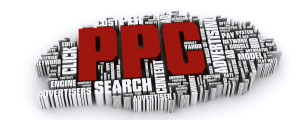Pay per click advertising is a great way to get visitors when you need traffic and you need it now. But it’s risky: With poor management, you can spend a fortune, generate many visits, and end up with nothing to show for it. This article will provide you with a high-level view of pay per click advertising, and some general strategies and provide an example of what to do, and what not to do.
WHAT IS PAY PER CLICK ADVERTISING?
Pay per click marketing, or PPC, is pretty simple: Search engines like Google and Bing allow businesses and individuals to buy listings in their search results. These listings appear along with the natural, non-paid search results.
SO HOW DOES IT ALL WORK?
These ads are sold in an auction. You bid what you want to pay for a click on the ad. Bid the most and you have a chance of ranking number 1 in the sponsored results. Note that I said a chance. There’s also something called quality score that can impact your ranking. More on that in a minute.
If someone clicks on your PPC listing, they arrive at your website, and you are charged the amount you bid. So, if you bid $.15 per click on ‘widgets’, and that’s the highest bid, you’ll probably show up first in line. If 100 people click on your PPC listing, then the search engine or PPC service will charge you $15.00.
WHY PPC ADVERTISING IS BAD
But PPC advertising can cost a fortune. It’s easy to get caught up in a bidding war over a particular keyword and end up spending far more than your potential return. ‘Ego-based’ bidding, where a CEO/marketer/someone else decides they Must Be Number One no matter what, can cost thousands of dollars. Also, bid inflation consistently raises the per-click cost for highly-searched phrases.
This inflation is caused by ego-based bidding and by the search engines themselves, who impose quality restrictions on many keywords. These quality restrictions increase the cost per click even if no one else is bidding.
Junk traffic can suck the life out of your campaign. Most pay per click services distribute a segment of their results to several search engines and other sites via their search partners and content networks. While you certainly want your listing displayed on Google and/or Bing, you may not want your listings showing up and generating clicks from some of the deeper, darker corners of the Internet. The resulting traffic may look good in statistics reports, but you have to separate out partner network campaigns and carefully manage them if you’re going to see a return.
Finally, pay per click advertising does not scale. If you get more traffic, you pay more money in nearly direct proportion to that traffic – your cost per click stays constant, and your overall cost increases. Compare that to search engine optimization, where you invest a fixed amount of time and/or money to achieve a better rank, and your cost per click goes down as you draw more traffic.
WHY PPC IS GOOD
Pay per click advertising can generate traffic right away. It’s simple: Spend enough, get top placement, and potential customers will see you first. If folks are searching for the key phrases on which you bid and you’ve placed a well-written ad, you will get clicks the moment the ad is activated.
So PPC advertising is fast: With some systems, such as Google AdWords, you can generate targeted traffic within a few minutes of opening an account.
PPC advertising is also nimble: Where natural search engine marketing or other forms of advertising can lag weeks or months behind changing audience behavior, you can adjust most pay per click campaigns in hours or days. That provides unmatched ability to adjust to market conditions.
PPC can also be a bargain: Sometimes, you can find keyword ‘niches’ for which the top bid is around $.10 – in that case, PPC is a great option, because you can generate traffic to your site for a fraction of the cost of any other form of paid advertising.
So, balancing the good and the bad, where does PPC fit in? As a focused advertising tool.
THE ROLE OF PPC ADVERTISING
Most businesses can’t afford to solely rely on PPC advertising. It’s too expensive, and bid amounts inevitably climb. But pay per click can fill a few important roles:
Campaign and issue-based traffic: If you have a short-term campaign for a new product, service or special issue, pay per click can be a great way to generate buzz. You can start a pay per click campaign within, at most, 24-48 hours, and you can generally change the text of your ad in mid-campaign, so adjusting your message is easy. If you need to focus attention for a finite amount of time, PPC is perfect.

No comments:
Post a Comment